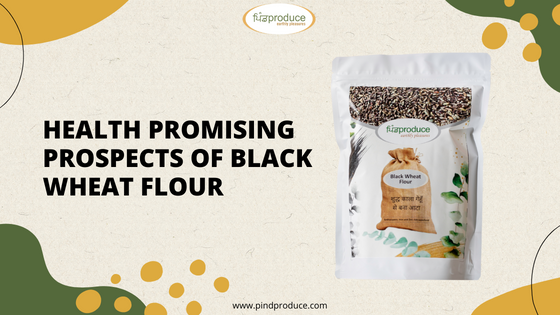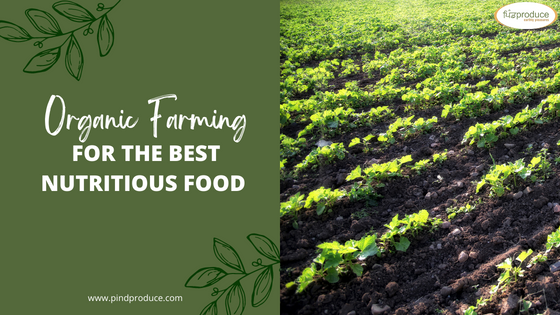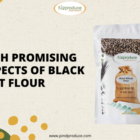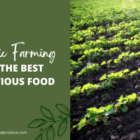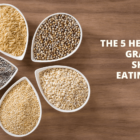Organic farming is growing in popularity as an agricultural technique. The demand for organic farming and organic products is always rising, even if the majority of agricultural land is still used for conventional farming. Let us gain some insights into this type of farming, what it involves, and what the advantages are.
What is organic farming?
Organic farming is a method of crop and livestock production that involves much more than choosing not to use pesticides, herbicides, and fertilizers. It encompasses a whole-system approach to farming that encourages soil and water conservation and aims to produce healthy, high-quality food. Organic farmers work to build biologically diverse and healthy ecosystems. Crop rotations cover crops, and other practices help to improve soil health by increasing organic matter, maintaining soil structure, and reducing compaction. These practices also help to control weeds, reduce pests and disease pressures, and build resilience to drought and extreme weather.
Advantages of organic farming
Advocates of organic farming say that it is more environmentally friendly than conventional farming. They also claim that organic farming is better for human health because it does not use synthetic chemicals.
No GMO (genetically modified organisms) –
Some people are skeptical of the thought of genetically modified crops, but those whose crops are grown organically don’t need to be. These farms put a lot of effort into avoiding contact with outside microbes. There is less chance of contamination, mutation, or loss in crop output because organic farming is a natural approach to growing food.
No harm to the soil –
Chemical fertilizers and pesticides can be replaced by techniques used by organic growers. In order to create robust ecosystems and stop erosion, they interact with the soil. Because they don’t utilize pesticides that degrade water quality or pollute the air, organic farmers have less of an influence on the environment than traditional ones.
Nutritious crop cultivation –
Organic farming techniques ensure that the land is fertile and that fertilizers are not required. These techniques also enable the natural production of nutrients like iron, calcium, phosphorus, magnesium, etc.
Safe for farmer’s health –
Organic farming can offer a healthy work atmosphere. Pesticide exposure is lower among organic farmers, and they use fewer dangerous chemicals to care for their crops and land. Farmers can stay on their land longer, and they don’t have to worry about the health effects of long-term exposure to chemicals.
Grow different varieties of crops –
Through techniques like crop rotation, animal breeding, composting, etc., to make the land more fertile without using any artificial fertilizer or pesticides, organic farming can assist farmers in growing more variety in a shorter length of time.
Sustainable farming –
Organic farming is more environmentally friendly and less harmful to the earth than conventional farming, making it more sustainable in the long term. Sustainable farming techniques are used by organic farmers, such as preserving crop rotation, utilizing livestock to turn weeds into cover crops and soil rich in nutrients, and using fewer chemicals.
Different organic farming techniques
Organic farming incorporates different types of procedures. However, the majority of organic farmers use a few well-known farming techniques:
- Crop rotation is used to achieve better crop protection against various pests and to preserve soil fertility.
- The restoration of organic matter in soil through manuring, composting, or mulching is the foundation of organic nutrient management.
- Growing cover crops is a good way to manage weeds and insect pests, stop soil erosion and increase the number of nutrients in the soil.
- Preventative crop protection techniques, such as selecting resistant types, adapting planting or sowing techniques, and timing of harvest.
- Using natural predators to guard against biological pests.
- Weeding as a method of non-chemical weed control.
- Anaerobic organisms aid in the control of pests that are found in the soil.
- Adequate spacing between crops.
- Using only sustainable resources.
Crops that can be grown using organic farming
Here are some of the crops that can be grown using organic farming practices: Vegetables: Organic farming is great for growing all sorts of vegetables. You can grow crops like tomatoes, carrots, potatoes, lettuce, and more without having to worry about harmful chemicals.
Fruit: Just like vegetables, you can also grow fruit organically. This includes crops like apples, oranges, bananas, and grapes.
Herbs: Organic farming is also great for growing herbs. This includes things like basil, oregano, rosemary, and more.
Grains: You can grow organic grains, including ones that are commonly cultivated and consumed as cereal oats, rice, and black wheat.
Nuts: You can grow organic nuts, such as walnuts and almonds.
Protein: You can also grow organic sources of protein, including beans of all types.
Organically grown pindproduce black wheat
Pindproduce black wheat is grown using organic farming methods. This wheat is characterized by its black color, which is a result of the high concentration of anthocyanins in the grain. Pindproduce black wheat is a non-GMO product, an excellent option when it comes to having a high amount of antioxidants, zinc, iron, protein, and fewer carbohydrates.
Organic farming practices are beneficial for both the environment and human health. They help to promote soil health, reduce water pollution, and minimize the use of harmful pesticides. When grown using organic methods, black wheat is a healthy and sustainable option for both farmers and consumers. Black wheat is a nutritious and delicious addition to any diet and is a great way to support organic farmers.
Pindproduce Black Wheat Available on:
www.pindproduce.com
Amazon
You Care Lifestyle
Mini Store

